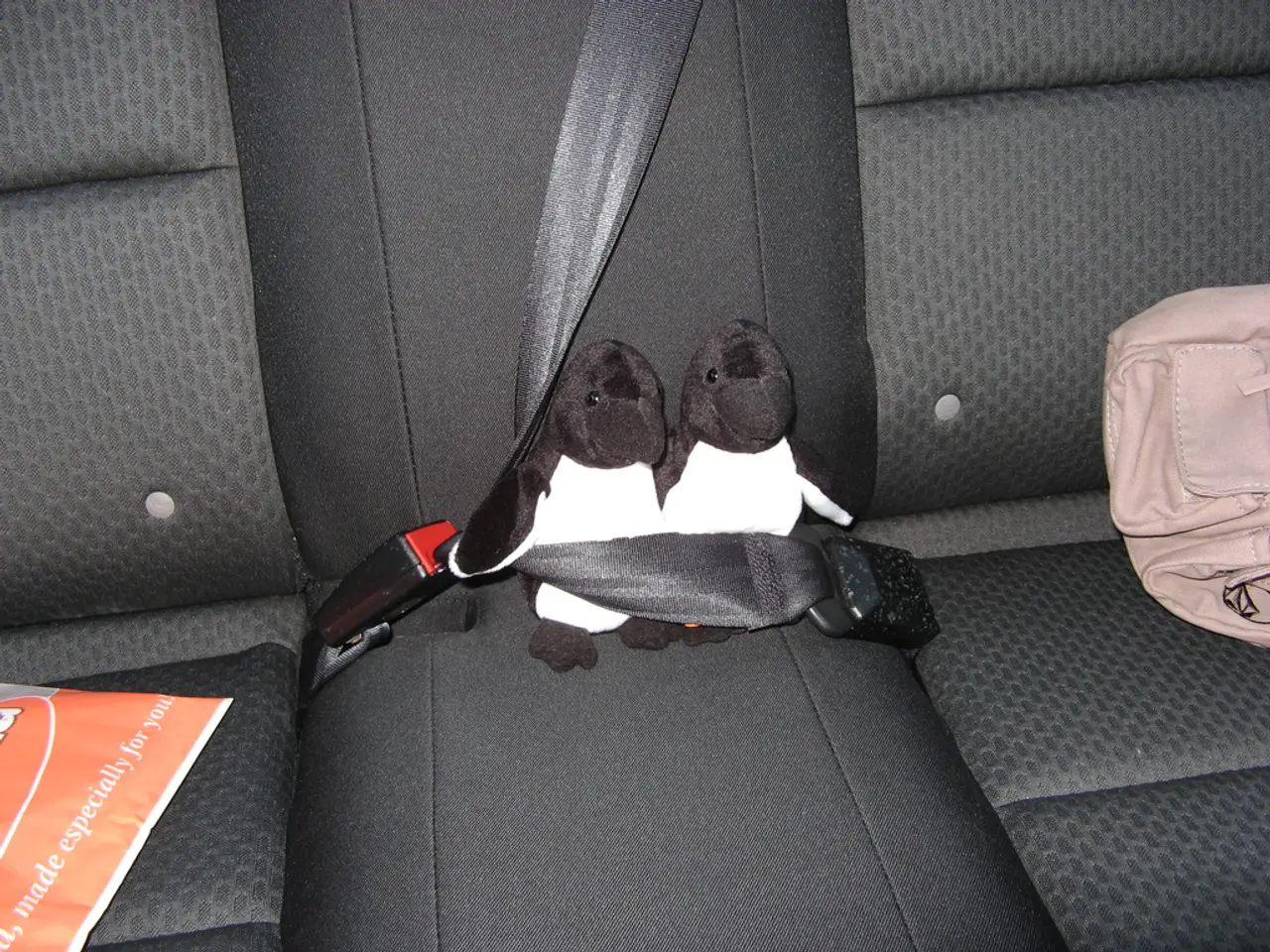Guidelines for Child Safety Seats in Germany
In Germany, the safety of children in vehicles is paramount. Here's a guide to the regulations surrounding child seats, focusing on the European standards UN Regulation 44/04 (ECE R44/04) and the newer UN Regulation 129 (ECE R129, known as i-Size).
For children under 1.35 meters (4 feet 5 inches) tall, a child seat approved under either of these standards must be used. i-Size seats offer enhanced safety measures, including height-based classification, rear-facing travel up to 15 months, ISOFIX installation, and side-impact protection.
Children start in a rear-facing infant seat, designed for newborns and babies. Experts recommend keeping children rear-facing for as long as possible, ideally until 15 months or later. Once they outgrow the rear-facing seat, they move to a forward-facing child seat equipped with a harness.
Child seats must be installed according to manufacturer instructions and compatible with the vehicle’s anchoring systems. Seats compliant with R129 do not require checking vehicle type lists as long as the seating position supports i-Size installation. R44/04 seats can continue to be used but are being phased out for new sales.
If buying a second-hand child seat, ensure it has a certification label for either UN R44/04 or i-Size (UN R129). Second-hand seats without certification labels are not legal for use.
In Germany, children must use an appropriate child seat until they are 12 years old or reach a height of 150 cm. Parents or guardians are responsible for providing the child seat when traveling by taxi. Taxi drivers are not required by law to provide or install child seats, but transporting children without an appropriate child seat can lead to fines for the parent(s) or guardian.
The law applies to all vehicles where seat belts are fitted. In case of taxis, the police may show leniency for very short or urgent trips, but this is not a guaranteed legal exemption. Taxi drivers may face consequences if they knowingly allow unrestrained children to travel, but policing tends to focus on guardians' responsibility.
Using the correct seat is essential not just for safety but to avoid penalties. Drivers and adults responsible for children can be hit with points on their driving licences and fines starting from €60 if they fail to use the appropriate seat.
In summary, adhering to child seat safety regulations in Germany is crucial for the well-being of children and to avoid penalties. Always ensure your child seat is approved under either UN Regulation 44/04 or the newer UN Regulation 129, and is installed correctly according to the manufacturer's instructions and the vehicle's anchoring systems.
Regular usage of child seats approved under either UN Regulation 44/04 or UN Regulation 129 is essential for both child health-and-wellness and to avoid penalties in Germany. The enhanced safety measures offered by i-Size seats may provide added protection, including height-based classification, rear-facing travel up to 15 months, ISOFIX installation, and side-impact protection.




